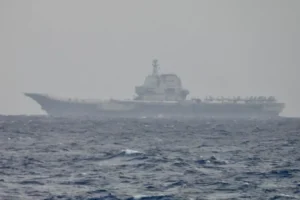The Indonesian president said the Association of Southeast Asian Nations (ASEAN) should see the Australia-United Kingdom-US (AUKUS) treaty as a partner rather than an adversary to ensure peace in Asia.
Indonesian President Joko Widodo, who holds the presidency of the 10-member regional bloc this year, said that ASEAN is by nature “open and inclusive” and will not act as a “authority”. for any country.
He told Malaysian television station Media Prima on May 8, “ASEAN is the only regional organization that offers various forms of diplomacy. The principle of ASEAN is cooperation, cooperation, and active participation.”
When asked about the plan to enhance ASEAN’s role in the Indo-Pacific region in the context of the emergence of AUKUS and Quad – both groups without ASEAN countries – Mr. Widodo said ASEAN These groups should be viewed as “partners” in ensuring stability in the region.
Mr. Widodo said they all have a common goal of denying conflict in the Indo-Pacific region, noting that ASEAN “doesn’t want to be isolated” in international efforts to maintain peace and harmony. stability in the region.
He said, “In my opinion, we should see Quad and AUKUS as partners, not competitors. Whatever happens in this region, ASEAN’s goal is to make the region stable and peaceful.”
The Indonesian leader added, “Without these two factors, it is difficult for the people of ASEAN to achieve prosperity.”
The AUKUS Treaty, announced in September 2021, sees the US and UK commit to helping Australia purchase nuclear-powered submarines — an act that has the potential to dramatically change the balance of power. in the Indo-Pacific region.
AUKUS is primarily seen as a counterweight to Beijing’s aggression and militarization in the region, in that it builds bases in the South China Sea, encroaches on Taiwan’s airspace, and assists naval fleets. illegal fishing.
In March, the Philippine Department of Foreign Affairs said it hoped the AUKUS treaty could “strengthen the rules-based international order as the foundation for regional security and development” in the Indian Ocean region– Pacific.
“For the Philippines, it is important that partnerships or agreements in the Indo-Pacific region, such as AUKUS, help us pursue regional cooperation,” the department said. deeper as well as sustained economic strength and resilience, essential to our national development and to regional security.”
The ruling Communist Party of China (CCP) of China has strongly condemned the AUKUS treaty. They say the deal is fueling military confrontation in the Asia-Pacific region and is driven by Cold War thinking.
ASEAN promotes stability in the South China Sea
Mr. Widodo said ASEAN member states expect all parties to comply with the 1982 United Nations Convention on the Law of the Sea (UNCLOS) regarding territorial disputes in the East Sea.
“Any claim that has no basis should not be made,” the ASEAN chair said. “[The key is] compliance with international law. ASEAN will continue to promote stability in the region.”
Beijing claims much of the South China Sea as its territory under the so-called nine-dash line despite competing claims from neighbors such as Vietnam, Malaysia, Taiwan, and Brunei.
Indonesia is not a party to the dispute, but Beijing’s claims to the sea partly coincide with Indonesia’s exclusive economic zone.
In 2016, The Hague Court ruled in favor of the Philippines’ legal case. However, this ruling did not cause the CCP to change its behavior, with Chinese ships repeatedly encroaching on Philippine waters.
On Monday (May 8), Ray Powell, head of the Myoushu Project in the South China Sea at Stanford University, said that Chinese militia ships approached an area where the Indian navies and other countries ASEAN is participating in exercises in the South China Sea.
Such militias include commercial fishing boats that work with the Chinese government for political purposes in the South China Sea. However, Beijing has previously denied the existence of any such militia.
Source: Epochtimesviet









